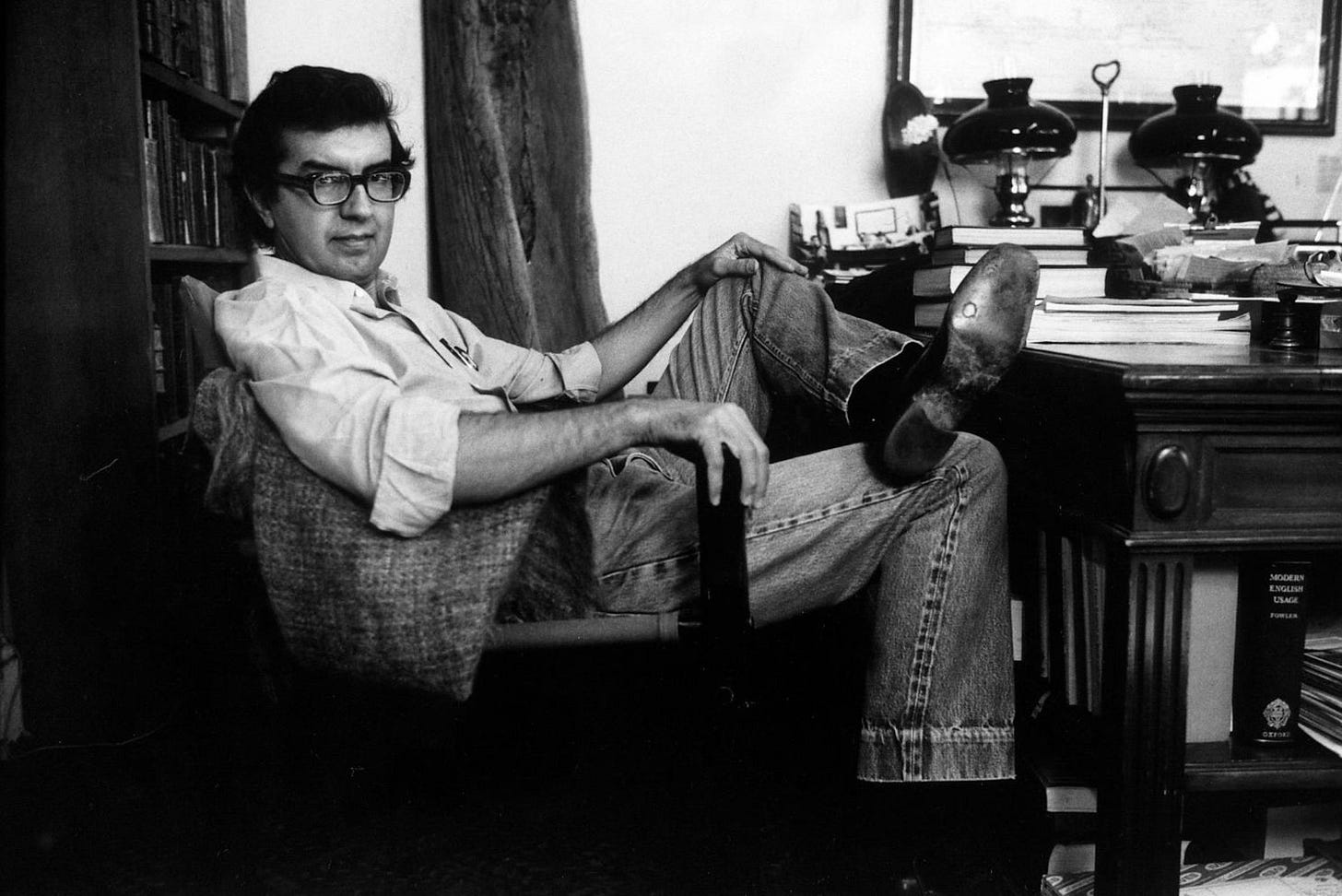Larry McMurtry’s Writing Routine
“I will stop in the middle of a sentence in order to avoid exceeding my page limit."
Larry McMurtry was born in Wichita Falls, Texas, and raised on a cattle ranch in nearby Archer County—a landscape of flat plains and barbed-wire fences that would become the bedrock of his fiction. It was not a place for books. His family didn’t own any. Stories were passed down orally, shared on porches and around dinner tables, the way early cultures preserved history and myth. That oral tradition shaped him. “Before the age of five or six, I lived in an aural culture,” he wrote in Books: A Memoir. “The fact of the bookless ranch house meant that I listened.”
By the time a cousin left behind a box of adventure paperbacks on his way to enlist in World War II, McMurtry was ready. He read them all. He was twelve. That accidental inheritance set off a lifetime obsession. Later, after studying English at North Texas and Rice, and earning a Stegner Fellowship at Stanford, McMurtry would publish Horseman, Pass By—his debut novel—at age twenty-five. The book was turned into Hud, starring Paul Newman. Hollywood came calling early, and never stopped.
Still, he stayed in Texas. Not out of loyalty or nostalgia, but because he was trying to write against it. “People are nostalgic for the Old West, even though it was actually a terrible culture,” he told Texas Monthly in 2010. “Not nice. Exterminated the Indians. Ruined the landscape.” He was a skeptic of myth, especially the cowboy myth. His characters weren’t heroes—they were broken men in broken systems. And yet, his most famous novel, Lonesome Dove, is now revered as a quintessential Western. It sold over four million copies and won the Pulitzer Prize in 1986.
He never quite forgave the book for its success.
“I thought I was writing a critique of the Western,” McMurtry told The Daily Beast. “It’s now the chief source of Western mythology.”
Originally conceived as a screenplay for John Wayne, Jimmy Stewart, and Henry Fonda, the story morphed into an 843-page epic after the film fell through. McMurtry renamed it after seeing “Lonesome Dove Baptist Church” painted on the side of a bus. He claimed to have written it quickly, with little sentiment. “I just sat down and wrote it,” he told Cowboys & Indians. He never re-read it. Barely watched the miniseries adaptation, which went on to become one of the most watched TV events in history.
He was always more emotionally invested in the characters during the writing than after. Once he finished a book, he let it go. “That emotional investment drains away,” he said. But not before shaping characters so enduring they still spark online debates: Woodrow Call and Gus McCrae, Clara and Lorena, Blue Duck. He gave even minor characters a depth that felt earned. And he did it all in prose that appeared plainspoken, yet had the rhythm and power of folklore.
He resisted the label “Western novelist.” He was, in his own words, a “novelist, screenwriter, bookman”—in that order.
Books were always at the center of his life. McMurtry founded Booked Up, a used bookstore in Archer City that at its peak held over 400,000 volumes across multiple buildings. “Instead of herding cattle,” he once said, “I herd books.” His own personal library contained around 25,000 titles. After a heart attack and bypass surgery in the 1990s, followed by a severe depressive episode, he wrote Streets of Laredo—a grim sequel to Lonesome Dove—at the kitchen counter of his friend and co-writer Diana Ossana’s Tucson home. “I felt like a fax machine,” he told The New York Times. But he kept writing—every day, without fail.
Larry McMurtry’s daily writing routine
Keep reading with a 7-day free trial
Subscribe to Famous Writing Routines to keep reading this post and get 7 days of free access to the full post archives.


